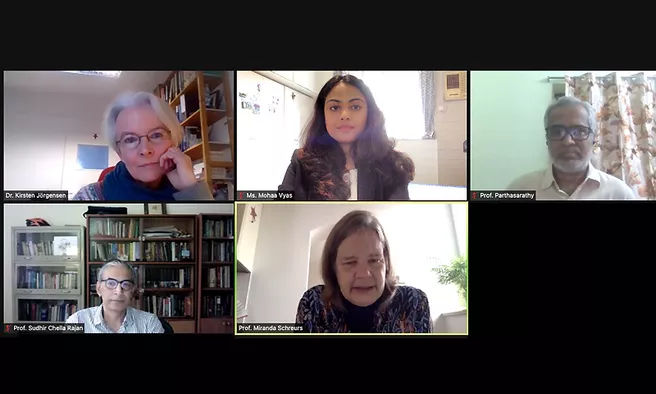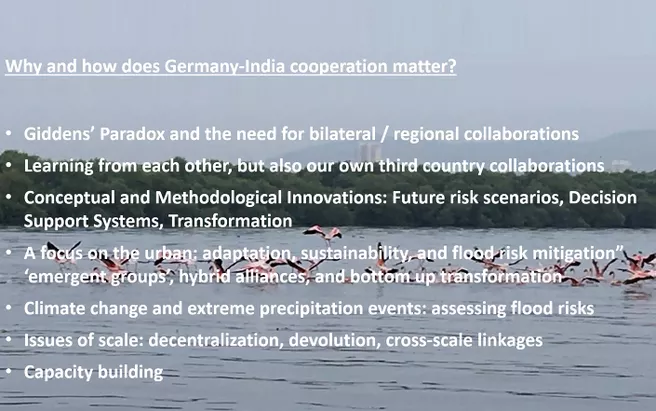Prof. Miranda Schreurs, Chair of Energy and Environmental Policy at the Bavarian School of Public Policy headed this year’s TUM Mumbai Dialogue. In addition to Prof. Schreurs, the global environmental dialogue featured a distinguished group of experts: The panel included Sabine Seidler from the German Federal Foreign Office, Prof. D. Parthasarathy from the Department of Humanities and Social Sciences Sociology at IIT Bombay, Prof. Sudhir Chella Rajan from the Department of Humanities and Social Sciences at IIT Madras, and Dr. Kirsten Jörgensen from the Department of Political and Social Sciences at Freie Universität Berlin.
In the live virtual talk, the scientists addressed perspectives for cooperation between India and Germany covering a wide range of areas such as society, industry, education and politics. Through these discussions, the online audience gained exciting insights into diverse approaches to mastering climate change together.
Priority areas of Indo-German cooperation
The TUM Global Dialogue on Indo-German cooperation and global environmental risks is of particular importance: According to the German representation in India, environment and climate are key areas of cooperation and in view of the current climate crisis and the increasing loss of biodiversity, these topics are more relevant and important than ever.
Prof. Claudia Warning, Director General for the Middle East, Asia, Latin America, South-Eastern and Eastern Europe at the German Federal Ministry for Economic Cooperation and Development, outlined four important developments in the Indo-German context at a recent briefing at the German Consulate: climate change, urbanization, destruction of natural resources, and pressures on democracy and society. It was also emphasized at this event that given the existing close strategic relationship between India and Germany, it is a major concern to tackle climate change together.
Solution to the problems only possible through joint efforts
Germany and India are among the world's top ten CO2 emitters. The speakers agreed that climate change must be addressed from the local level and cannot be overcome by governments alone. Tackling environmental problems, they said, also requires the joint efforts of industry and business - as well as universities, researchers, and students.
Fostering interaction between these important stakeholders definitely needs to be supported. Prof. Schreurs stated that the possibilities for the necessary exchange are given: “There is so much potential in German Indian collaboration linking universities, industry and civil society to address major challenges like global climate change, social inequalities, and past injustices.”
The subject of discussion at the TUM Mumbai Dialogue 2021 struck a nerve. Not only did it bring numerous interesting questions from the audience, but it also triggered lively discussions on climate change, water management, governance, and politics. We are already looking forward to the next expert exchange.
Learn more about Indo-German collaborations: Exploration. A German-Indian Partnership is an initiative in which scientists and students from TUM, IIT Bombay, and IIT Kharagpur advance the research foci of climate, environment, energy, mobility, and transportation.

